See Thailand through these Colourful Expressions
See Thailand through these Colourful Expressions
วันที่นำเข้าข้อมูล 21 Nov 2022
วันที่ปรับปรุงข้อมูล 21 Nov 2022
Like with every language, there are a few Thai idioms that might get lost in translation.
For instance, pak chee roy na (ผักชีโรยหน้า) or “ sprinkle cilantro on top” describes a gimmicky attempt to make something look good (e.g., with a garnish) without doing anything substantive to fix the problem (e.g., how the dish tastes).
Idioms are a reflection of the culture. In Thailand, they speak to our way of life, where we come from, and our worldview. Let’s dig deeper into the history, beliefs, and traditions that have led to some of the Thai language’s most colorful sayings.
Idioms based in religion
If it wasn’t obvious from the sheer number of temples scattered across the country, many Thais identify as Buddhist, and that’s created some peculiar sayings surrounding this major religion.
“You could say it with a Buddhist amulet in your mouth.”
Om pra ma pood (อมพระมาพูด)
Example: This is the fourth time you’ve lied to me about your mother being sick. You could say it with a Buddhist amulet in your mouth, and I still wouldn’t believe you.
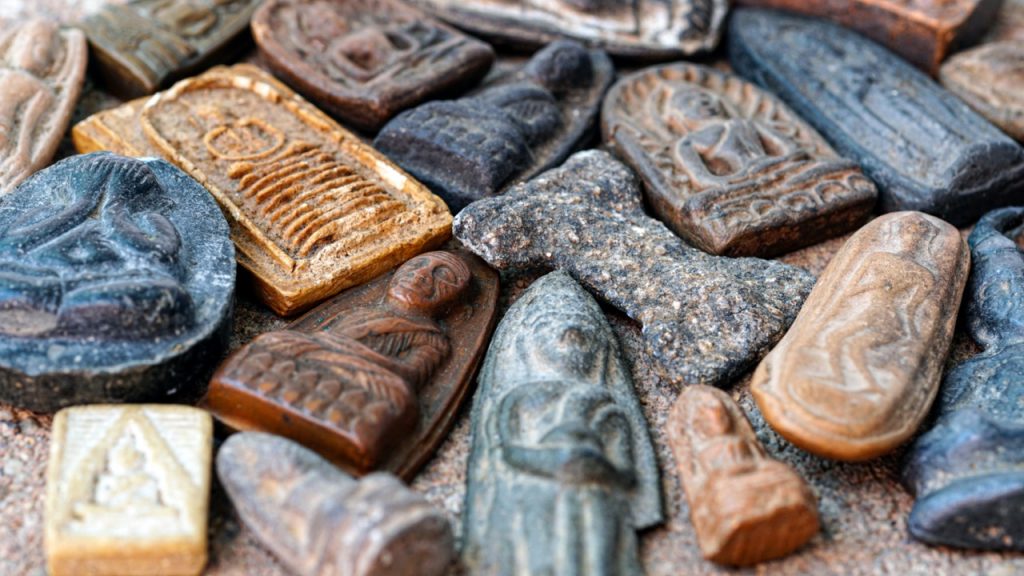
Source: Oasishifi / Shutterstock.com
“Paste gold leaf onto the back of a Buddha statue.”
Bhid thong lang pra (ปิดทองหลังพระ)
Example: Our elderly neighbor has a knee problem, so our father has been secretly taking her trash to the dumpster every morning so she doesn’t have to. He’s pasting gold on the back of a Buddha statue.
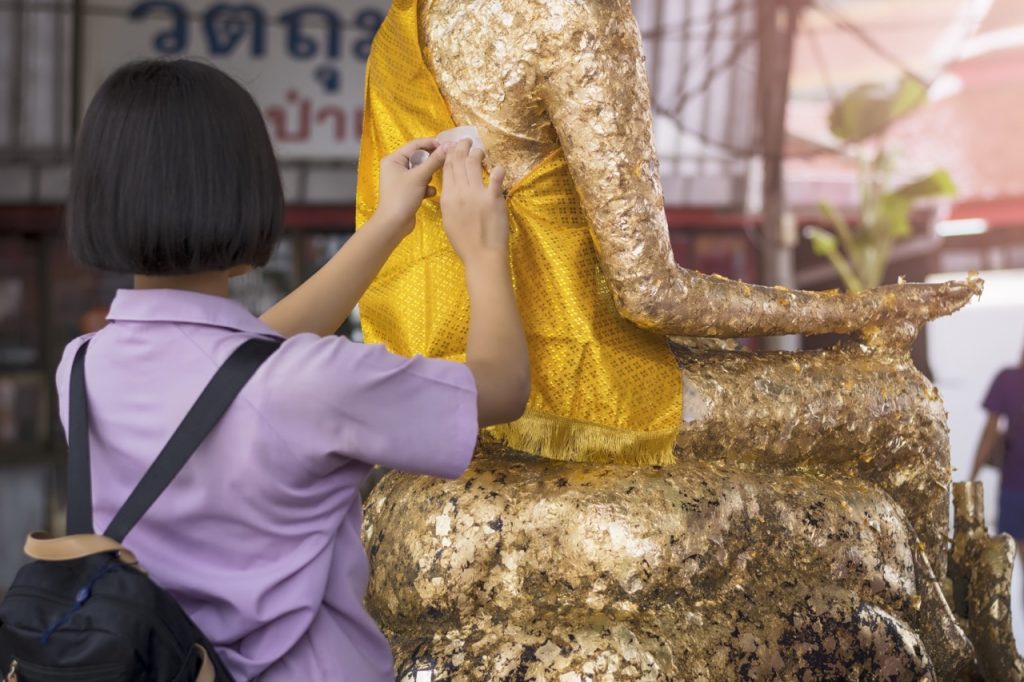
Source: Oasishifi / Shutterstock.com
When you’ve lost all trust in someone, this saying comes in handy.
Like swearing on the Bible before testifying, a Thai person might swear on a sacred talisman or amulet when trying to convince someone of their truthfulness. But when someone has a reputation for dishonesty, they could swear on a Buddhist amulet (🇹🇭), and you still wouldn’t believe them.
“You could say it with a Buddhist amulet in your mouth” is a hyperbolic expression of skepticism, sometimes said in its entirety as, “You could say it with a Buddhist amulet in your mouth, and I still wouldn’t believe you.”
“There’s more than one Buddhist Holy Day.”
Wan pra mai dai mee hon diew (วันพระไม่ได้มีหนเดียว)
Example: My son didn’t get a callback interview, but there’s more than one Buddhist Holy Day. He’s just gotta keep applying.

The Buddhist Holy Day or Wan Phra is observed four times a month. Similar to how many Christians go to church on Sunday, Buddhists mark this day by participating in religious activities, such as merit-making, listening to Buddhist sermons, or adhering to certain religious precepts such as abstaining from alcohol or animal products.
The holy day has come to symbolize an auspicious occasion, a favorable opportunity, and luck. Hence, to say “there’s more than one Buddhist Holy Day” is used to cheer someone up, as if to say, “better luck next time.”
Elephants, dancers, and farmers
From elephants to rice farming, Thai idioms are like a trail of breadcrumbs pointing to its way of life. While some of these expressions may sound curious to foreign ears, they are packed with imagery.
“That’s like riding an elephant to catch a grasshopper.”
Ki chang jab thakathaan (ขี่ช้างจับตั๊กแตน)
Example: I cannot believe Somkiet called a professional electrician to change a lightbulb. That’s like riding an elephant to catch a grasshopper.
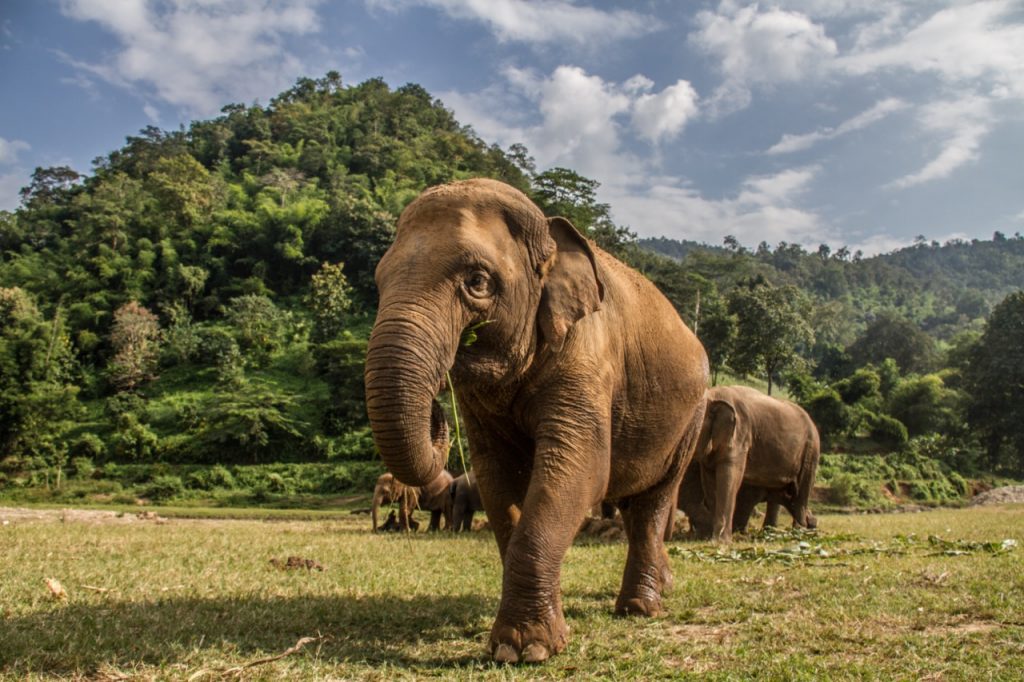
Source: Oriol Querol / Shutterstock.com
Thailand has a deep relationship with its national animal, so much so that the country celebrates a National Elephant Day. Because of their size and strength, elephants have been part of ancient Thai transportation, commerce, and warfare.
“That’s like riding an elephant to catch a grasshopper” refers to when the solution is overkill and someone over-invests resources for insignificant tasks. This idiom is similar to “killing a fly with an elephant gun,” which implies a much different relationship with elephants.
“A bad dancer blames the flutes and drums.”
Ram mai dee toed bhee toed glong (รำไม่ดีโทษปี่โทษกลอง)
Example: Whenever Araya loses at badminton, she claims there’s something wrong with the shuttlecock. A bad dancer always blames the flutes and drums.
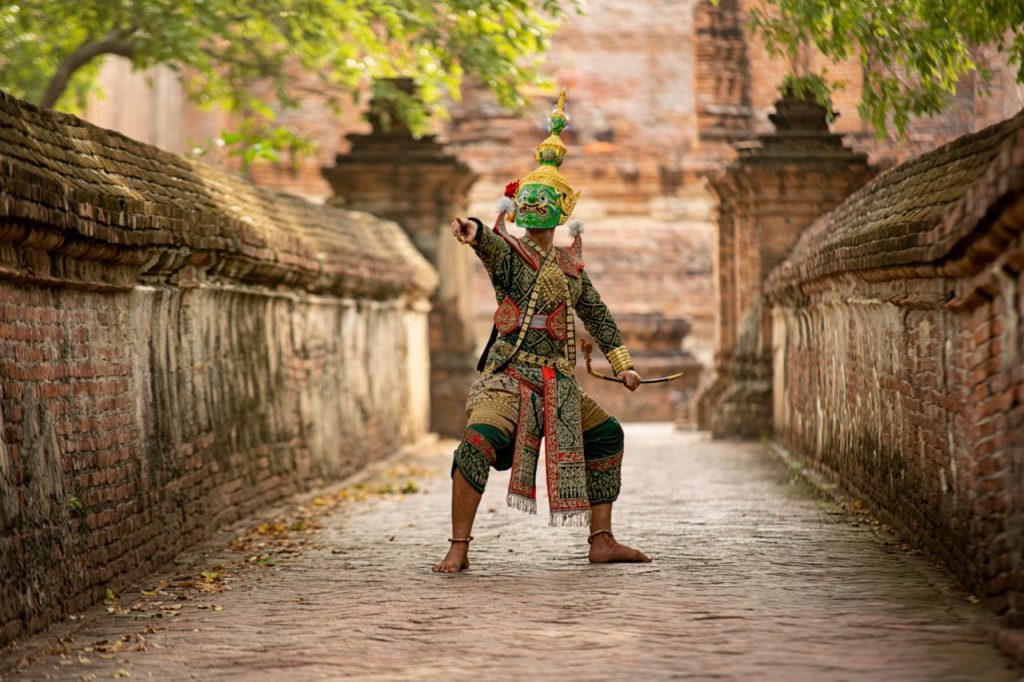
Source: M2020 / Shutterstock.com
We’ve all met someone who just never owns up to their mistakes. They’re always blaming the traffic for being late or a coworker for their own poor job performance.
The next time your friend is blatantly refusing to take responsibility, hit them with this saying.
“A bad dancer always blames flutes and drums” specifically evokes traditional Thai folk dancing, which is often accompanied by Thai woodwinds (bhee) and drums (glong). This is comparable to the expression (🇹🇭), “A bad workman always blames his tools.”
“To grow rice off other people’s backs.”
Tam na bon lang kon (ทำนาบนหลังคน)
Example:My manager is growing rice off other people’s backs. He takes credit for everything the team does right, but blames us for everything that goes wrong.
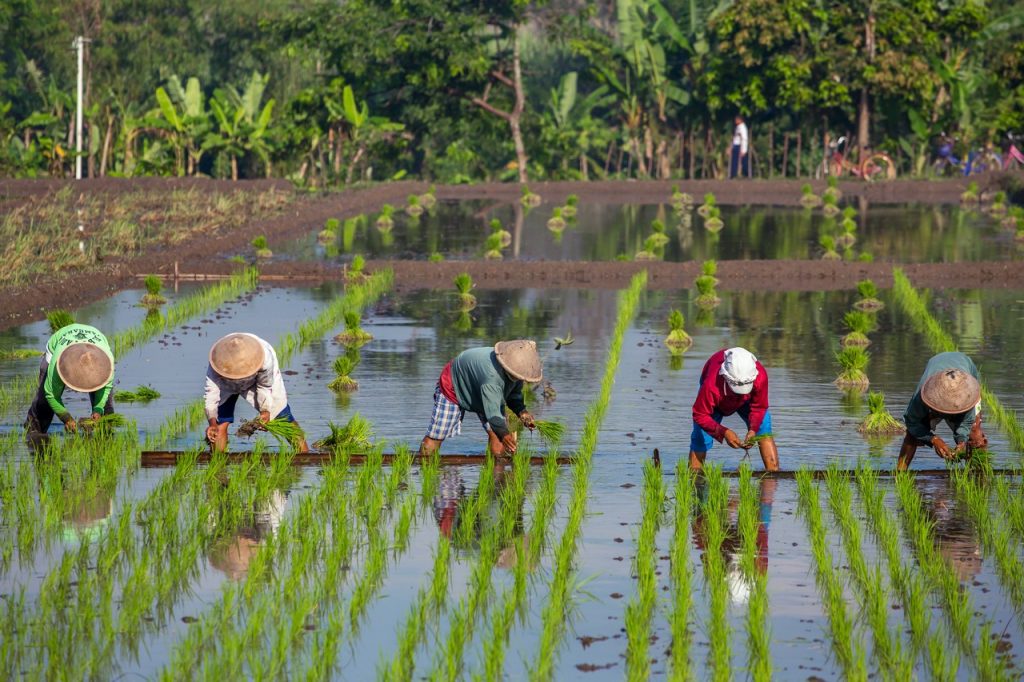
Source: Mazur Travel / Shutterstock.com
Rice farming is a huge part of Thai agriculture, so there’s no surprise to hear a few sayings related to Thailand’s biggest crop. In fact, many Thai children are taught to clean their plate and not leave even a single grain of rice, lest they disrespect the backbreaking labor that goes into growing rice.
“To grow rice off other people’s backs” means to shamelessly profit at the expense of others or exploit other people’s efforts for personal gain. “To live off the backs of (someone)” would be the closest comparison.
Overlapping expressions
English speakers learning Thai for the first time might be surprised to find that there’s actually several sayings the two languages have in common. Expressions such as Luead kon gwa nam (“blood is thicker than water”), gae dam (“black sheep”), and kao hoo sai talu hoo kwa (“in one ear and out the other”) speak to a common worldview that is reassuringly familiar and relatable.
This commonality is sure to grow as people continue to share their lives and experiences through social media platforms. One day, we may find such a melting pot of aphorisms that it’s hard to tell who inspired who.
About the Content Creator:
Natcha Jantararotai
A writer, translator, and avid reader, Natcha, or Lha, works in the field of digital diplomacy at a foreign government organisation. Aside from her interest in cross-culture communication, she is passionate about storytelling and how creativity can be used as a tool to inspire groundbreaking solutions. Her love for nature and the urge to support local communities play a crucial role in her writing pieces.
Original article can be accessed at: https://www.thailandnow.in.th/
Article Related
Article Related
21 Nov 2022